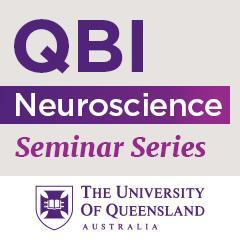Dr Hari Subramanian, UQ : "The midbrain periaqueductal gray: A novel circuit for treatment of intractable neurogenic autonomic disease via neuromodulation"
Speaker:
Dr Hari Subramanian
Research Leader - Systems Neuroscience & Neuromodulation Laboratory, Asia-Pacific Centre for Neuromodulation, Queensland Brain Institute, The University of Queensland
Title: "The midbrain periaqueductal gray: A novel circuit for treatment of intractable neurogenic autonomic disease via neuromodulation"
Abstract:
The autonomic nervous system (ANS) regulates respiration, vocalization, blood pressure and heart rate, micturition, nociception, sexual and gastrointestinal function and the co-ordination of their physiological responses to emotional behavior. Diseases of the ANS include breathing and vocalization disorders, hypertension, chronic pain and urinary incontinence. These manifest either due to neurogenic dysfunction of autonomic control circuits and/or accompany psychiatric and emotional disorders.
Deep Brain Stimulation (DBS) neuromodulation is seen as an emerging novel treatment option for a range of primary dysautonomias, autonomic dysreflexia and for conditions reflecting catastrophic autonomic dysfunction such as in the cases of sudden unexpected death in epilepsy. The scope of DBS application is vast because autonomic diseases are most often severe, pharmaco-refractory, life threatening or life-impairing.
Autonomic functions are controlled via complex interaction between brainstem neural circuits and peripheral feedback pathways. Together they constitute the central autonomic network (CAN).
Within the CAN the midbrain periaqueductal gray (PAG) situated at the rostral end of the brainstem could be a one ‘stop shop’ for treatment of autonomic disease via DBS neuromodulation.
This seminar will examine how; 1) the PAG functions as the critical relay circuit of the forebrain integrating emotion and bodily responses, 2) whether there exists autonomic topography within the PAG, i.e. segregation of neural circuits specific to single autonomic function, 3) how PAG dysfunction triggers respiratory, vocalization cardiovascular and urinary disease states 4) how selective neuromodulation of PAG circuits for therapeutic target of specific autonomic disease can be achieved. Further the seminar would examine autonomic disease animal models and design/implantation aspects of neural prosthesis in the brainstem for neuromodulation therapy advancement.
About Neuroscience Seminars
Neuroscience seminars at the QBI play a major role in the advancement of neuroscience in the Asia-Pacific region. The primary goal of these seminars is to promote excellence in neuroscience through the exchange of ideas, establishing new collaborations and augmenting partnerships already in place.
Seminars in the QBI Auditorium on Level 7 are held on Wednesdays at 12-1pm, which are sometimes simulcast on Zoom (with approval from the speaker). We also occassionally hold seminars from international speakers via Zoom. The days and times of these seminars will vary depending on the time zone of the speaker. Please see each seminar listed below for details.



